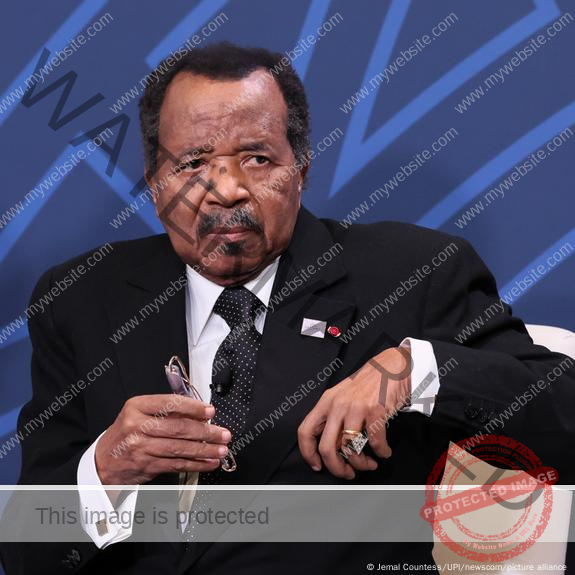By Mankah Rosa Parks |Senior Analyst.
What is unfolding in Cameroun today is not an election campaign — it is a desperate ritual of survival, a hollow performance designed to preserve power, not to transfer it.
The re-emergence of 93-year-old Paul Biya as the standard bearer of his ruling party for yet another presidential term is not only farcical — it is dangerous.
To those who understand the inner corridors of power in Yaoundé, this development was not entirely unexpected.
The regime has, for decades, functioned not as a government of service but as a cartel of survival. What we are witnessing now is not leadership, but the reflex of an aging system that has lost all sense of national renewal
Cameroon is not being governed — it is being maintained, like a decaying monument propped up by crumbling scaffolds of fear, loyalty, and silence.
Behind closed doors, even Biya’s most loyal aides whisper concerns.
His visible frailty, the long absences from the country, and the increasingly paranoid style of governance have left many wondering who is really in charge.
Yet, instead of confronting reality, the system has chosen spectacle. Biya is being paraded, not as a man of vision, but as a symbol of unbroken continuity — a relic kept alive for the sake of those who benefit from the illusion.
Worse still is the disturbing method of financing this charade. Across the country, from ministries to rural councils, citizens and civil servants alike are being coerced into “donating” to the so-called Paul Biya Reelection Fund.
The process is neither voluntary nor patriotic — it is a thinly veiled extortion campaign enforced through fear and obligation.
Employees who resist are threatened with career stagnation or dismissal. Communities are told that future government support may depend on their visible loyalty.
This is not governance. It is hostage politics — a system where national resources and public trust are weaponized to sustain an aging despot in office.
Cameroun, once rich in promise, now teeters under the weight of decades of lost opportunity. Youth unemployment is staggering, hospitals are underfunded, infrastructure crumbles, and hope is in short supply.
Yet rather than cultivate a transition or chart a national course beyond Biya, the regime has doubled down on its most familiar tool: control.
For many Camerounese, this reelection campaign is more than a political insult — it is a national humiliation.
It signals to the world that the country’s leadership is unwilling to face the realities of its own decline. Instead of nurturing democracy, they have resorted to preserving a dynasty of dysfunction.
The world must take note. Africa’s progress depends not only on innovation and trade, but on the willingness of its leaders to pass the torch. No nation can move forward while chained to the past. And no people should be forced to fund the glorification of their own oppression.
The tyranny that refuses to die may delay change, but it cannot prevent it forever. Sooner or later, even the most entrenched systems crack.
And when that moment comes, it will not be the result of ballots or speeches, but of a people who have finally had enough

